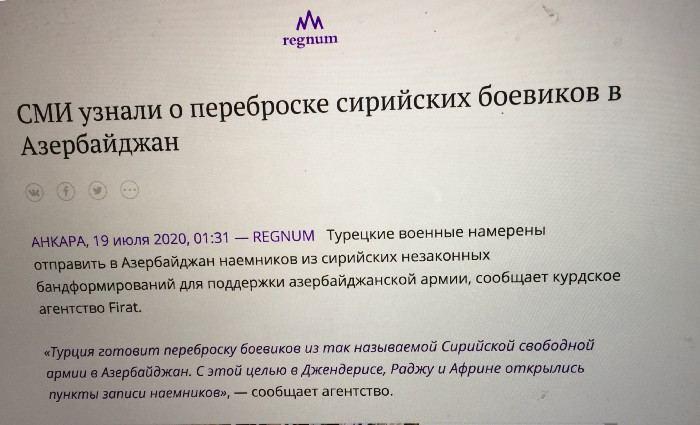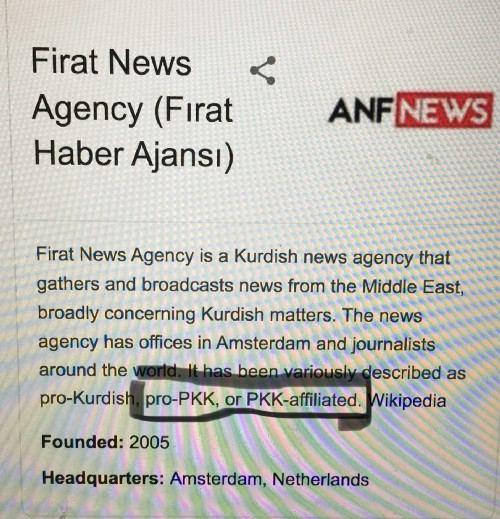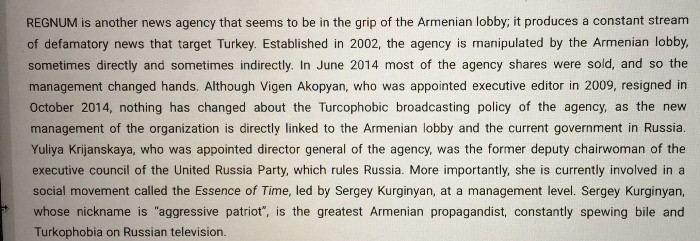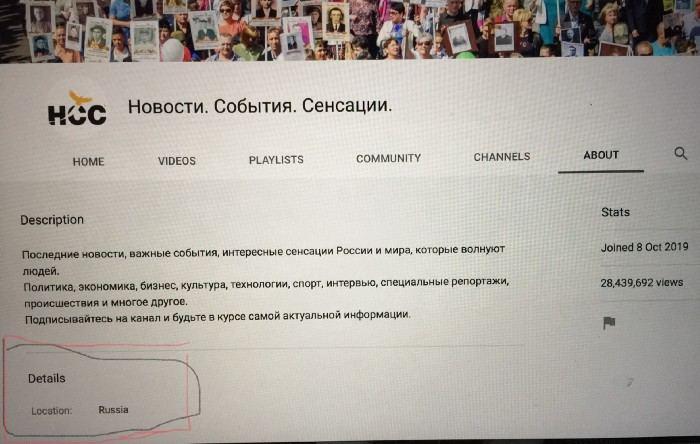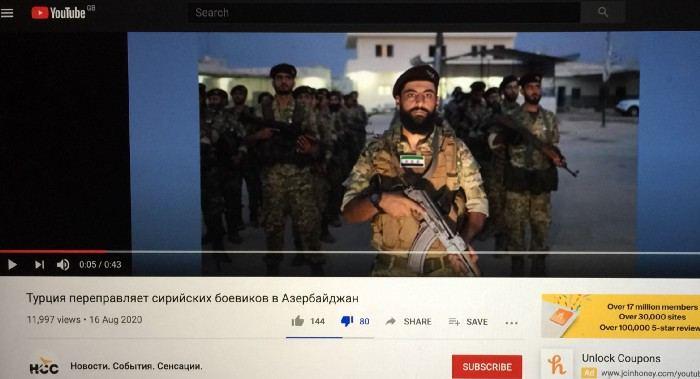Сoordinated fake news attacks on Azerbaijan debunked [PHOTO]
![Сoordinated fake news attacks on Azerbaijan debunked [PHOTO]](https://www.azernews.az/media/2020/09/25/jweidjewjdfref1.png)
By Trend
Article named "COORDINATED fake news ATTACKS ON AZERBAIJAN DEBUNKED" was published on Sept. 24 at Medium internet portal, which covered articles of disinformative nature, Trend reports with reference to the article.
The article said that Armenia has always used disinformation to attack Azerbaijan and create a false narrative in the international media to achieve its political objectives.
"The history of Armenia’s fake news campaign is old and goes back to 1918 when Dashnak newspapers actively stirred up emotions against Azerbaijanis, calling on fellow Armenians to attack their neighbours. Scotland Liddell, a British journalist based in the Caucasus, was critical of Dashnak newspapers for publishing false, wholly exaggerated articles daily, which fanned the flames of the Armenian-Azerbaijani conflict at that time," the article said.
"Following Yerevan’s provocation in the Tovuz section of the state border between Armenia and Azerbaijan in July this year, the old fake tactics were put into action to create a narrative against Baku. Recently Armenia’s Foreign Minister Zohrab Mnatsakanyan falsely claimed in an interview with Egyptian newspaper Al Akhbar that “there are reports of recruitment of foreign terrorist fighters in Syria with aim to be transferred to Azerbaijan.” He also shamelessly accused Turkey of sending Syrian fighters to Azerbaijan at his news conference with his Egyptian counterpart in Cairo," the article said.
"First of all, it is not surprising that he made this totally fake claim in Egypt which has strained relations with Ankara because of Turkish President Erdogan’s actions in Libya and the East Mediterranean as well as his harsh criticism of the Cairo government. Armenia wants to strengthen its ties with countries that are in disagreement or even conflict with Ankara. But Armenia’s foreign minister referred to “reports”, but did not substantiate or even source his claims," the article's author wrote.
"Before analysing his “reports”, we need to go back to 2016, when military operations flared up again between Armenia and Azerbaijan. Armenia’s provocation on the contact line resulted in a four-day battle in occupied Karabakh. To inspire global condemnation of Azerbaijan Yerevan and its radical diaspora organisations and media outlets initiated a fake news campaign, accusing Baku of using “ISIS fighters” against the Armenia occupying army in Azerbaijan. Considering that at that time ISIS was global news and the anti-ISIS coalition was fighting against them, Armenian PR experts must have thought they could take advantage of the situation to weaken Azerbaijan. David Babayan, who is an advisor on foreign relations to the so called “president” of Upper Karabakh, the artificially created entity in the occupied territories of Azerbaijan, said at a news conference that “Karabakh has proof of ISIS involvement in April clashes”, but failed to produce any evidence. The claim was published on the website of the lobbyist Armenian National Committee of America, and the Asbarez website. Both are affiliated to the ethno-nationalist Armenian Revolutionary Federation, known also as the Dashnak party, which is vehemently opposed to Azerbaijan. The claim is ridiculous, as Azerbaijan is a secular state with multiple confessions; the extremist ISIS followers would never fight on behalf of a secular state. Those who are familiar with ISIS ideology know very well that their followers do not consider even Saudi Arabia as an Islamic state, let alone Azerbaijan which is a secular state with a Shia majority, the staunch enemies of ISIS. This is why the Armenian 2016 propaganda stunt failed," the report said.
"To return to Mnatsakanyan’s claims: they were taken from media reports about the recruitment of Syrian fighters in order to send them to Azerbaijan. These reports were spread by a news agency called Firat (ANF NEWS), based in Amsterdam. Firat is a pro-PKK news agency: CBC, Reuters and the BBC describe it as “close” to the PKK, while Deutsche Welle states that Firat and the PKK have links. In its report Firat claimed that Turkish military officers were willing to send pro-Turkey Syrian fighters to Azerbaijan in the midst of the July border clashes. Considering that Turkey is fighting the PKK and its Syrian extensions, namely the YPG, a pro-PKK news agency would not hesitate to circulate false news against its enemy.
In other words, Firat news agency’s unproven claims cannot be relied upon," the report said.
"Firat was used by Russia’s Regnum news agency as a source of fake news about the Syrian fighters in Azerbaijan. Regnum is a pro-Kremlin news agency which gives a platform to an anti-Azerbaijani, ethno-nationalist separatist figure named Ismayil Shabanov. Shabanov, who is based in Russia, constantly attacks Azerbaijan in his separatist columns for Regnum where he calls for the secession of the Talish ethnic group from Azerbaijan. In one of his articles for Regnum entitled “Access to Iranian borders: vital and strategic question for Russia”, Mr Shabanov literally calls on Moscow to instigate the Talish region’s secession and thus to control that part of Azerbaijan’s border with Iran. Regnum’s only branch in the South Caucasus operates in Yerevan and Armenian Vigen Hakobyan was its executive director until recently. The Armenian lobby’s influence on Regnum is strong. Estonia’s Security Police (Kapo) in its 2005 yearbook said that Regnum was a tool in Russia’s state propaganda machine. Regnum was led at that time by Modest Kolerov, who was also head of a department within Vladimir Putin’s administration. In essence the Estonians said that Regnum is an umbrella for Russian secret service operations in countries of the so called “near abroad” and seeks to promote Russia’s geopolitical agenda," the articles said.
"Russia is not neutral on the Karabakh conflict as can be seen from the Russian-Armenian military drills following the July Tovuz clashes and Moscow’s arms supplies to Yerevan during the clashes. Moscow is concerned at Baku’s desire to conduct an independent foreign policy and to have closer strategic relations with Turkey, including the possibility of hosting Turkish military bases in Azerbaijan. The Kremlin is also concerned at the recent sidelining of Ramiz Mehdiyev, who was removed as head of the Azerbaijan Presidential Administration. Mehdiyev led the pro-Russia forces within the Azerbaijani political elite, dubbed the fifth column by President Ilham Aliyev. These concerns taken together are reason for the Russian media to conduct a coordinated campaign of fake news about Syrian fighters as a way of pressurising the Azerbaijani government. Another Russian media, Tsargrad published a ludicrous, unsubstantiated claim on 18th July that the killers of Russian “pilots” in Syria in 2015 would be among the Syrian fighters sent to Azerbaijan," the report said.
The full articles can be found here
--
Follow us on Twitter @AzerNewsAz
Here we are to serve you with news right now. It does not cost much, but worth your attention.
Choose to support open, independent, quality journalism and subscribe on a monthly basis.
By subscribing to our online newspaper, you can have full digital access to all news, analysis, and much more.
You can also follow AzerNEWS on Twitter @AzerNewsAz or Facebook @AzerNewsNewspaper
Thank you!

